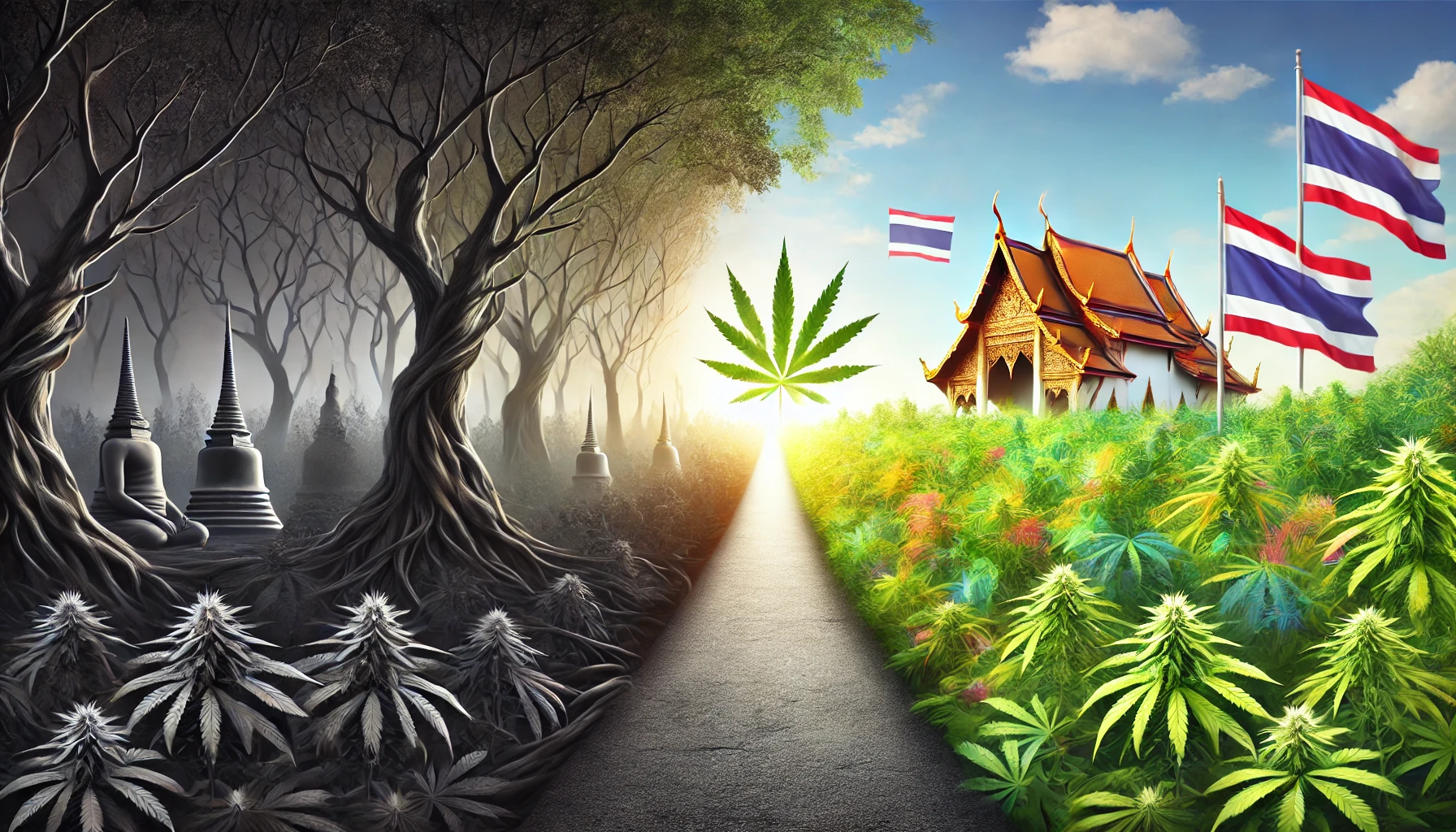Thailand’s approach to drug policy has evolved significantly over the past decade, with some parallels to the path taken by Canada:
Background
In the early 2000s, Thailand had some of the world’s harshest drug laws, with long prison sentences even for possession of small amounts of drugs. A 2003 “war on drugs” led to severe prison overcrowding.
Key Developments
- 2016: Thailand began drafting a new drug law aimed at decriminalization and reducing the prison population, influenced by Thai officials attending the 2016 UN General Assembly Special Session on drugs.
- 2019: Thailand allowed medical use of cannabis for the first time in its modern history, while Canada had legalized medical cannabis back in 2001.
- 2021-2022: Thailand rapidly liberalized its cannabis policies, removing the plant from the narcotics list, allowing home cultivation, and enabling recreational use. This mirrors Canada’s legalization of recreational cannabis in 2018, although the Thai approach has been less regulated so far.
- 2021 Narcotics Code: Aimed to be more proportionate in sentencing and health-focused, although drug use remains criminalized. Canada has not decriminalized drug use.
Comparison with Canada
- The pace of change in Thailand has been very rapid compared to the more gradual evolution in Canada. Thailand went from medical use to unregulated recreational use in just a few years.
- Like Canada, Thailand has struggled with how to effectively regulate the newly legal cannabis market, with proliferating unlicensed dispensaries and concerns about youth access and public health. Stronger regulations are being considered.
Future Outlook
- Thailand’s new government elected in 2023 has vowed to restrict recreational cannabis and refocus on medical use. However, a full reversal seems unlikely given the economic benefits to farmers and businesses. Canada has maintained its legal regulated market.
Conclusion
In summary, while starting from a more punitive baseline, Thailand has in some ways leapfrogged Canada in liberalizing its cannabis laws, although effective regulation remains a challenge in both countries. The next few years will be crucial in determining whether Thailand continues on a path of reform or reverts to a more restrictive approach. Ongoing debates around public health, individual liberties, and social equity in drug policy are likely in both nations.
Sources:
- NCBI. (n.d.). The evolving landscape of drug policy in Thailand.
- IDPC. (2021). Thailand reforms drug laws to reduce impacts of criminal justice system.
- HRI. (n.d.). Thailand reforms drug laws to reduce impacts of criminal justice system.
- NPR. (2022). Thailand is rethinking its approach in its drug laws.
- IDPC. (2023). After the national election, will Thailand move forward in realizing a human rights and harm reduction approach?.
- Tilleke & Gibbins. (n.d.). Amendments to Thailand’s Drug Act.
- NIAID. (n.d.). Thailand Clinical Research Regulations.
- Senate of Canada. (2002). Cannabis: Our Position for a Canadian Public Policy.
- UNODC. (1998). Technical Series: Drug Control Policies.
- Harm Reduction Journal. (2021). The Case for Drug Policy Reform.
- NCBI. (n.d.). Socio-economic impacts of cannabis policy.
- Open Society Foundations. (n.d.). Why We Need Drug Policy Reform.
- BMC Public Health. (2023). Public Health Implications of Cannabis Legalization.
- TNI. (2023). Cannabis policy in Thailand: A way forward.




